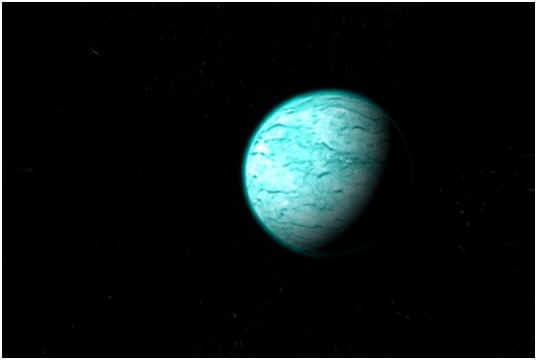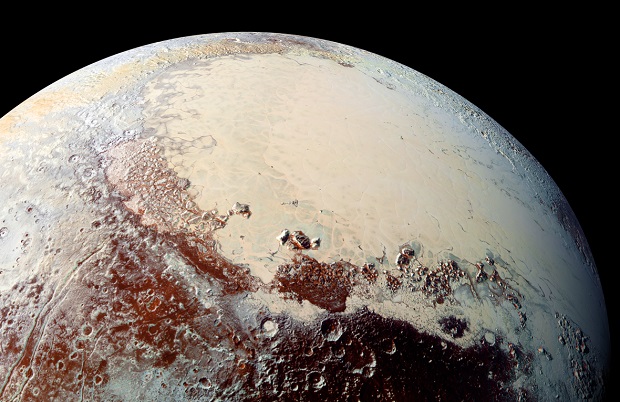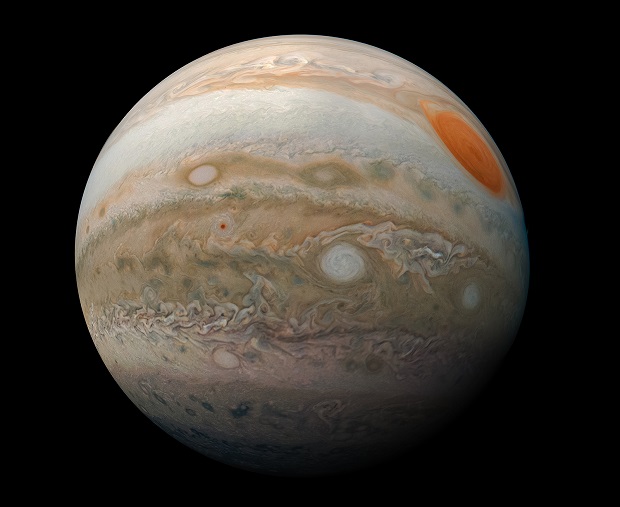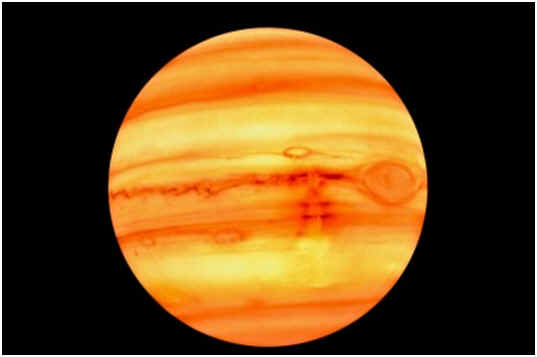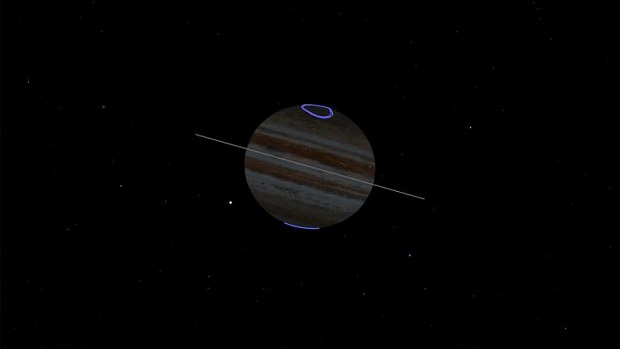
Image Credit: NASA/JPL-Caltech/SWRI
Does Jupiter Rotate? Jupiter does rotate. Like all other planets in our solar system, Jupiter rotates on its axis and orbits around the Sun. Jupiter has the fastest rotation of any planet in the solar system of approximately 10 hours. Due to the relatively small tilt of its axis of only 3.13°, it does not have the kind of seasonal differences between hemispheres that we are familiar with on Earth.
Jupiter’s Differential Rotation
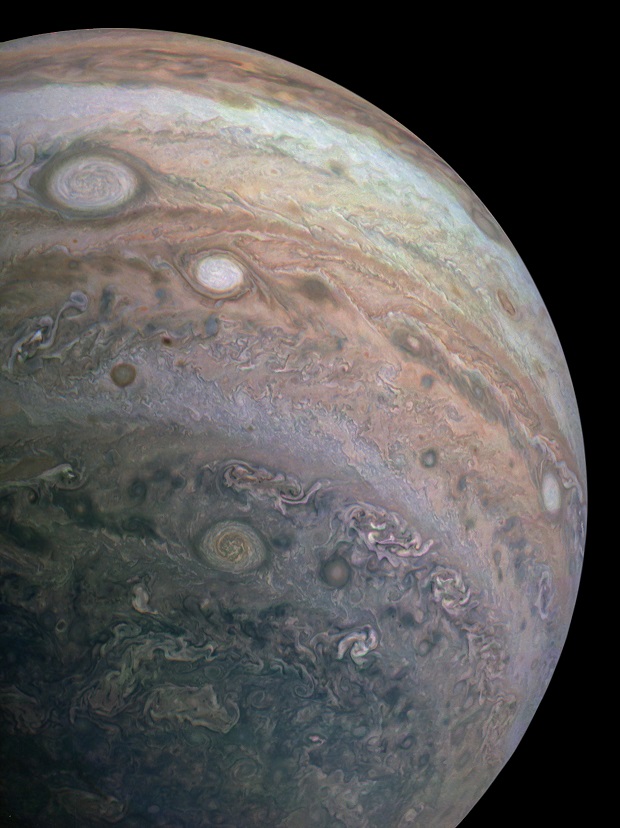
Photo Credit: Image data: NASA/JPL-Caltech/SwRI/MSSS Image processing by David Marriott
Scientists refer to Jupiter as a “gas giant,” which means the planet is not a solid mass but is predominantly composed of various gases surrounding a small inner rocky core. Differential rotation refers to how certain gaseous layers of the planet rotate around its axis at different speeds due to various atmospheric and planetary forces. Due to the inconsistent nature of Jupiter’s actual physical rotation, scientists frequently use the rotation of the planet’s magnetosphere (magnetic field) as an official baseline when necessary.
Jupiter’s Rotation Discovery
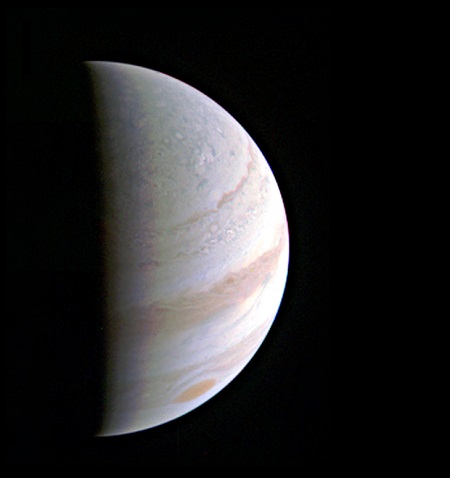
In the 17th century, Giovanni Cassini first observed the various layers of gases comprising Jupiter’s visible atmosphere and estimated its rotation speed. Later in the 20th century, space probes Pioneer, Voyager, and Galileo flew by the planet and obtained much more accurate scientific data, which has formed the basis of our knowledge about Jupiter and its rotation.


